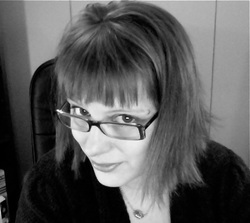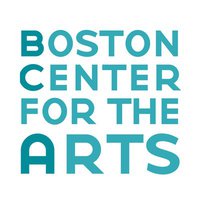 JACQUELINE LAWTON: Why did you decide to get into theatre? Was there someone or a particular show that inspired you? ILANA M. BROWNSTEIN: I’ve always had a great love of story. I remember two incredibly visceral theatrical moments from my childhood. In the first, my parents took me to a storytelling event that I was, it turns out, much too young for. The storyteller was of some renown, and the place was packed. He told a scary folk tale about a forest monster and a starving woodsman, and I was so terrified I began screaming. The guy stopped the event and asked my parents if I was ok. We left before the story was over, which also upset me, since I wasn’t going to find out how it ended. The second event was when I was about 8. My mother was an English teacher at a private school, and took her class to see The Tempest at the Goodman’s old spaces; I tagged along. In this production, Ferdinand made his first entrance nude, and strapped to a wheel, after Leonardo’s Vitruvian Man. As he was rolled onto stage, the audience was incredibly, respectfully quiet. I, however, felt it was necessary for me lean over and inform my mother, very much too loudly, that this dude had no clothes on. So, the two earliest theatrical memories I have are essentially about me making a scene and disrupting the story. Maybe my life as a dramaturg, one utterly dedicated to story, has been some sort of atonement for that. JL: How long have you lived and worked as a dramaturg in Boston? What brought you here? Why have you stayed? IMB: I’ve been in Boston over 10 years now, and came here to be the Huntington’s Literary Manager and new play person. I never thought I’d stay, but Boston grew on me, and now it’s completely home. In 2003 I was wrestling with what it meant for a regional theatre to be truly regional – it was a path of inquiry that led me to create new pathways for local playwrights to intersect with the company. At that time, there were numerous Boston playwrights, but not much of a coherent community of writers. It’s a much different place these days. One of the things that has kept me here is my deep love of and commitment to the Boston theatre ecology, and to celebrating Boston playwrights here and abroad. JL: How do you define dramaturgy? Or explain it to people the work that you do? IMB: First, as you probably know, you ask 10 dramaturgs that question, you’ll get about 17 different answers. That said, here’s my basic definition, which I come back to over and over in my life. The dramaturg is the artist in the process whose job it is to uncover and present pathways into the world of the play for every imaginable constituency – be that the playwright, the characters, the staff of the theatre, the collaborators on the production, potential donors, audiences, or community stakeholders. JL: What skills and traits do you feel a successful dramaturg should have to support the development of a new play or a production? IMB: Grace, patience, persistence, being a close reader, great note-taking skills, even better human communication skills, empathy, and that peculiar brand of double vision that allows you to know the play intimately while cultivating the stance of the naïve observer. Also, it doesn’t hurt if you can provide snacks every once in a while. Or bourbon. JL: Now, I’d love to hear your thoughts about working in Boston. Finish this sentence...
JL: How do you feel the Boston theatre community has addressed the issues of race and gender parity? How has this particular issue impacted you and your ability to get your work produced on the main stages? IMB: I don’t think we’ve successfully addressed it yet as a whole, but there are a number of important initiatives underway that will begin to tell us, in terms of actual data points, who does and doesn’t access the theatre in this town, and why. StageSource and The Center for Theater Commons are both investing significant efforts on this front. My personal frustrations with these questions were a large part of why I came on board with Company One. It’s a place where we have these conversations constantly, and the questions of whose stories are (or aren’t) on Boston stages are formative for us in season planning. I would love to see more Boston playwrights actively take on these questions – there’s a hunger for local work that presents the multiethnic real world, rather than the “the bizarre, artificial world of all intact white people,” as Charles Mee so aptly puts it. JL: Tell us about the play you’re working on and what excites you about it. IMB: I’m working on both Splendor Lit Beneath Their Bones by Kirsten Greenidge, and Smart People by Lydia Diamond. Ah, these two plays, they are my heart. I have long-time collaborations with both playwrights, who are also teaching colleagues of mine, and dear friends. I love that I know their whole bodies of work; that these plays are in dialogue with plays in their back catalogues. I love that both are deeply local, and, I think, achieve universality through their specificity. Both playwrights have long relationships with Company One, and it feels extremely appropriate that they’d bring these scripts back to our artistic home. JL: Why should audiences attend the XX Playlab Festival? IMB: I have always believed in the power of demystifying the creation process. Plays do not (or at least, very rarely) arrive in the world fully formed and completed. They are living, breathing organisms that need the oxygen of actors and the light of an audience to come into their own. I think developmental play readings are exciting. You not only get to be in the room as the playwright does her work, but you are in dialogue with it. The act of being present changes the script, lets it find its legs. The XX PlayLab Festival allows audiences to get in on the ground floor with plays that are on their way to production, to be in conversation with the writers, and to see two incredibly hot roundtable conversations with leading artists and thinkers. Why wouldn’t you want to be there?
0 Comments
Your comment will be posted after it is approved.
Leave a Reply. |
My BlogI'm a playwright, dramaturg, and teaching artist. It is here where you'll find my queries and musings on life, theater and the world. My posts advocate for diversity, inclusion, and equity in the American Theatre and updates on my own work. Please enjoy!
Categories
All
Archives
June 2020
Reading List
|



